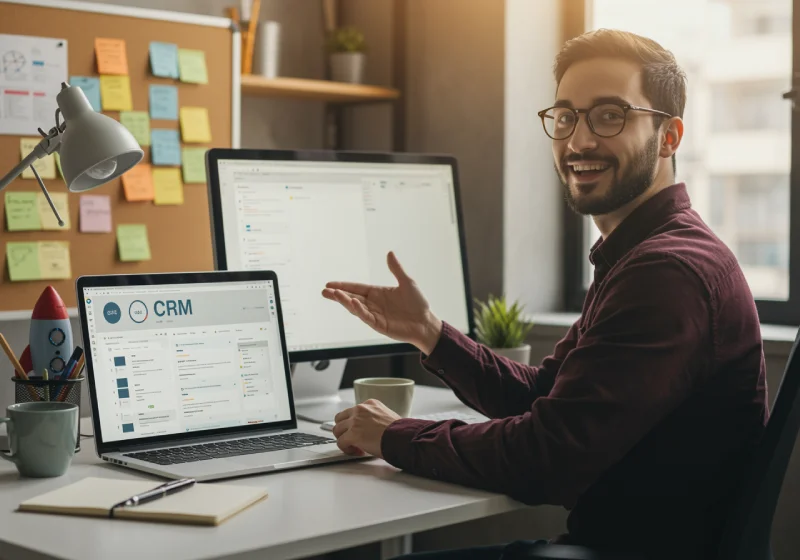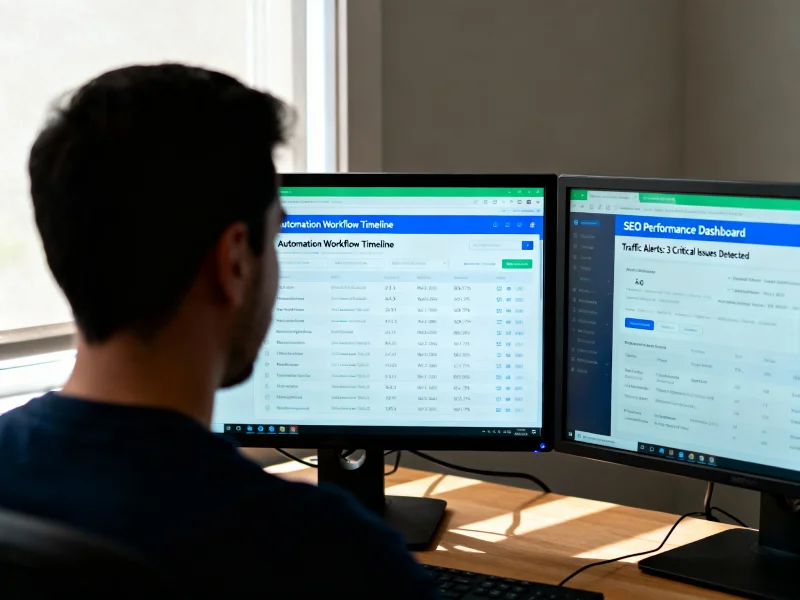Demystifying Seo: Unlocking Search Engine Success With A Digital Marketing Agency (Seo Optimization, Search Engine Success)
Are you tired of hearing about the importance of SEO but unsure where to start? Do you want to unlock search engine success for your website, but feel overwhelmed by all the technical jargon and strategies out there? Look no further than this article on demystifying SEO with a digital marketing agency.
In the ever-evolving world of online marketing, SEO remains a critical component for businesses looking to increase their visibility and reach. By optimizing your website for search engines, you can attract more organic traffic, improve user experience, and ultimately drive conversions. However, achieving SEO success requires a deep understanding of best practices and ongoing effort to stay ahead of algorithm updates. In this article, we'll break down the basics of on-page optimization and link building, as well as discuss how to measure your results. Plus, we'll explore how partnering with a digital marketing agency can take your SEO strategy to the next level. Get ready to unlock the power of search engines and propel your business forward!
Understanding the Basics of SEO
If you're new to the world of digital marketing, you might be wondering: what exactly is SEO and how does it work? Simply put, SEO or search engine optimization refers to the process of optimizing your website in order to increase its visibility and ranking on search engine results pages (SERPs). The higher your website ranks on SERPs, the more likely people are to find it when they search for specific keywords related to your business.
In order to achieve a high ranking on SERPs, there are a number of factors that need to be taken into account. These include everything from the quality of your content and the structure of your website, to the number and relevance of external links pointing back to your site. By focusing on these factors and implementing effective strategies for optimizing them, you can improve your website's overall performance and achieve greater success in online search. This leads us into our next section about 'on-page optimization'.
On-Page Optimization
When it comes to on-page optimization, there are three key points that you need to focus on: optimizing your website structure and content, using relevant meta tags and descriptions, and optimizing your images. By ensuring that your website is structured in a way that makes sense for both users and search engines, you can improve your chances of ranking higher in search results. Additionally, by including accurate meta tags and descriptions, you can give search engines more information about what your pages are about. Finally, optimizing your images by compressing them and adding alt text can improve page load times and make them more accessible for visually-impaired users.
Optimizing Your Website Structure and Content
To optimize your website's structure and content, you'll need to carefully consider the layout and organization of your pages. This includes creating a clear hierarchy of information using headings and subheadings, ensuring that navigation is intuitive and easy to use, and placing important content above the fold (the visible area of a webpage without scrolling). By doing so, you can improve the user experience for visitors to your site and make it easier for search engines to crawl and index your pages.
It's also important to focus on creating high-quality content that is relevant and valuable to your audience. This means conducting keyword research to identify topics that are popular among your target audience, using those keywords strategically throughout your content, and providing in-depth information that answers their questions or solves their problems. By doing so, you can establish yourself as an authority in your industry while also improving your chances of ranking higher in search engine results pages (SERPs). With these strategies in place, you'll be well on your way towards achieving search engine success.
When it comes to optimizing your website for SEO purposes, one key element to keep in mind is the role of meta tags and descriptions. These elements provide important information about each page on your site that helps search engines better understand its purpose and relevance. In the next section, we'll explore how you can use meta tags and descriptions effectively as part of an overall SEO strategy.
The Role of Meta Tags and Descriptions
Understand how meta tags and descriptions play a crucial role in improving your website's visibility and conveying the purpose of each page to search engines. Meta tags are HTML codes that provide information about your website's content to search engines. They include the title tag, which is the main heading displayed on search engine results pages (SERPs), and the description tag, which gives a brief overview of what visitors can expect from your site.
The title tag should be concise, keyword-rich, and accurately describe the content on that particular page. It should also be unique for each page on your website. The description tag should also be informative, engaging, and encourage visitors to click through to your site. By using relevant keywords in both tags, you can help search engines understand what each page is about and improve its ranking in SERPs. Now let's move on to image optimization for further improvements in SEO!
Image Optimization
Optimizing images on your website can significantly enhance its online presence by improving loading times and enhancing user experience. To optimize images, you should first reduce their size without compromising quality. Large image files can slow down your website's loading time, which negatively impacts user experience. You can use image compression tools or resize images manually to make them smaller.
Another way to optimize images is by adding alt tags to them. Alt tags are descriptions of what the image is about, and they help search engines understand what your website is all about. This improves your chances of ranking higher in search engine results pages (SERPs) for relevant keywords. With optimized images, you can improve your website's appearance and user experience while also boosting its visibility online through improved SEO practices like link building.
Link Building
Link building is essential for boosting your website's ranking on search engines and driving traffic to your site. It involves acquiring links from other websites that point back to your own. These links act as "votes of confidence"for your website, signaling to search engines that it is a reputable source of information.
There are several tactics you can use for link building, such as guest blogging, broken link building, and creating high-quality content that others will naturally want to link to. However, it's important to note that not all links are created equal. Links from authoritative sites in your industry will carry more weight than those from low-quality or unrelated sites. By focusing on building quality links rather than quantity, you can improve your website's visibility and attract more organic traffic.
Transition: Once you have implemented effective SEO strategies like image optimization and link building, the next step is measuring your success.
Measuring Your SEO Success
Measuring your SEO achievements is crucial for tracking the progress of your website and improving its performance. There are several metrics that you can use to measure your success, including ranking positions, organic traffic, conversion rates, bounce rates, and engagement metrics. By analyzing these metrics on a regular basis, you can identify areas of improvement and adjust your strategies accordingly.
Ranking positions are one of the most obvious indicators of SEO success. Higher rankings mean better visibility and more clicks from potential customers. Organic traffic is also an important metric because it shows how many people are visiting your site through search engines. Conversion rates reveal how well your website is converting visitors into customers or leads. Bounce rates indicate whether visitors are leaving your site quickly or engaging with your content. Engagement metrics such as time on page and pages per session show how interested visitors are in your content. By monitoring these metrics closely and making adjustments as necessary, you can improve the overall effectiveness of your SEO strategy.
Measuring SEO success is just one part of achieving search engine success. A digital marketing agency can help you develop a comprehensive strategy that includes keyword research, link building, content creation, and ongoing optimization efforts to achieve long-term results for your business.
How a Digital Marketing Agency Can Help
If you want to take your online presence to the next level, partnering with a digital marketing agency can be the game-changer you need. Here are some ways in which a digital marketing agency can help you achieve search engine success:
- Expertise: Digital agencies have dedicated teams of SEO experts who stay up-to-date with the latest algorithm updates and trends in the industry. They know how to optimize your website for both users and search engines.
- Resources: A digital agency has access to advanced tools and resources that can help improve your SEO efforts. They use analytics and data-driven insights to measure your progress and make informed decisions about what strategies will work best for your business.
- Strategy: A good digital marketing agency won't just focus on optimizing individual pages or keywords; they'll develop a comprehensive strategy that aligns with your overall business goals.
- Results: Ultimately, working with a digital marketing agency should result in improved search engine rankings, increased traffic, and more leads or sales. With their expertise and resources, they can help you achieve real results that impact your bottom line.
Partnering with a digital marketing agency can be an investment in the long-term success of your business. By leveraging their expertise, resources, strategy development skills, and proven results, you're taking steps towards unlocking search engine success for your brand.
Frequently Asked Questions
How long does it typically take for SEO efforts to show results?
Typically, it takes 3-6 months to see results from your SEO efforts. However, this can vary depending on the competitiveness of your industry and the quality of your strategy. Consistency and patience are key for long-term success in SEO.
Can social media activity impact my website's SEO?
Yes, social media activity can impact your website's SEO. Social signals such as likes, shares, and comments can increase the visibility of your website in search results. However, it is important to ensure that the social media profiles linking to your website are high quality and relevant to your niche.
Are there any common mistakes that businesses make when attempting to optimize their website for search engines?
Common mistakes businesses make when optimizing their website for search engines include keyword stuffing, neglecting mobile optimization, ignoring user experience, and not regularly updating content. Avoid these errors to improve your SEO success.
What are some alternative methods for increasing website traffic aside from SEO?
To increase website traffic, consider social media marketing, email campaigns, influencer partnerships, and paid advertising. Engage with your audience through high-quality content and interactive features. Measure performance with analytics tools to optimize results.
How frequently should I update my website's content to maintain good SEO rankings?
To maintain good SEO rankings, update your website's content regularly. This shows search engines that your site is active and relevant. Aim to refresh pages every few months or add new blog posts weekly.
Congratulations! You have now learned the basics of SEO and how it can help you achieve search engine success. With on-page optimization, link building, and measuring your results, you have the tools to improve your website's visibility on search engines.
However, if you're feeling overwhelmed or unsure about how to implement these strategies, a digital marketing agency can provide valuable assistance. They can offer expert advice and create customized solutions to fit your unique needs. By partnering with an agency, you'll be able to focus on running your business while leaving the technical aspects of SEO in capable hands.
Remember that SEO is not a one-time task but rather an ongoing process that requires consistent effort and adaptation. With patience and perseverance, you will see results over time. And with the help of a digital marketing agency, achieving search engine success can become a reality for your business.









